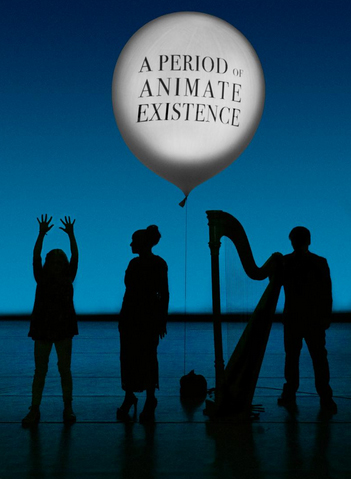A Period of Animate Existence is a new work of symphonic theater created by the OBIE Award-winning Pig Iron Theatre Company. Children, elders, and machines contemplate the future in a time of dire predictions and rapid technological change. This music-theater work about life cycles and planetary cycles features a chamber orchestra, two generations of choirs, and a halal cart. Composer Troy Herion, designer Mimi Lien, and director Dan Rothenberg are artists-in-residence at the Penn Program in Environmental Humanities for 2016-2017. A Period of Animate Existence grows from their explorations of new language for the Anthropocene and experiments in choral singing.
As part of PPEH's Ecotopian Toolkit conference, Pig Iron presents two free showings (4/14 and 4/15) of excerpts from Movements 2, 3, and 4 of A Period of Animate Existence. A Period of Animate Existence will premiere at the Annenberg Center in September at the 2017 FringeArts Festival.
CONFERENCE 13–15 April 2017, University of Pennsylvania
An Ecotopian Toolkit for the Anthropocene
Presented by Penn Program in the Environmental Humanities; cosponsored by Penn Humanities Forum, Institute of Contemporary Art, Kislak Center of Penn Libraries, and Bartram’s Garden.
Keynote Speakers: Rebecca Solnit (April 13) and James Hansen (April 14)
Tool making is a signature trait of the human species. What tools will we make, and require, in the age of the human, the anthropocene: the proposed name for the present geological epoch when humans are the most potent force shaping earth’s systems? Global warming and other anthropocene challenges, including the ongoing sixth mass extinction event, often lead to apocalyptic visions, or apathy. Prompted in part by the 500th anniversary of Thomas More’s Utopia, a classic work whose concerns continue to translate across time and space, we explore a longer history of the anthropocene to help represent—and respond to—our contemporary moment. Might a utopian turn help us navigate warmer, rising waters and build new forms of refuge? What tools can STEAM educators in universities and museums design and develop via the history of utopia and its hope for better futures? Questions? Please email conference organizers.



